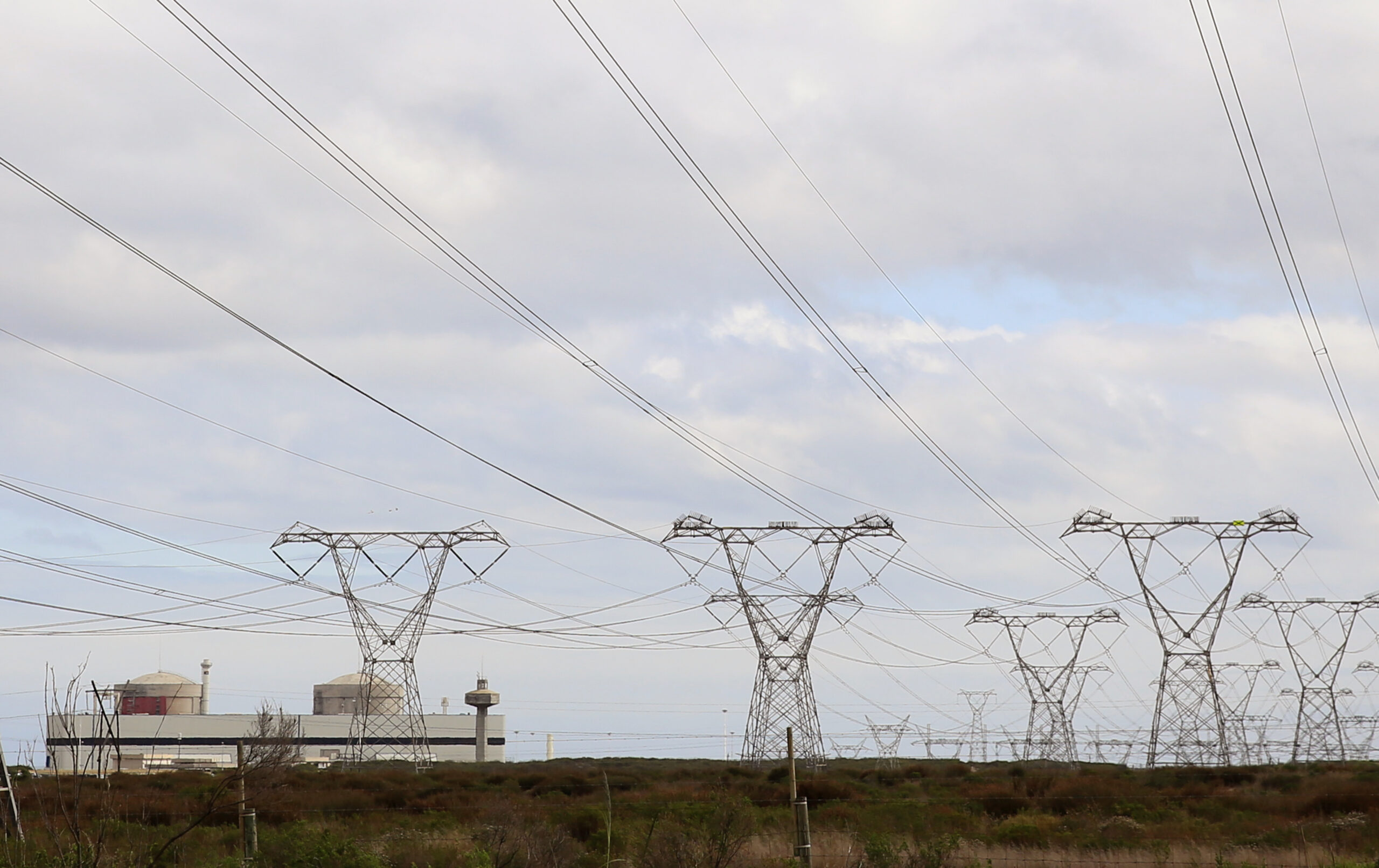Service delivery will completely collapse if Eskom cuts electricity supply to municipalities – SCA.

Koeberg is the only commercial nuclear power station in Africa. Picture: Gallo Images / Nardus Engelbrecht
Two recent court rulings have made it much more difficult for Eskom to leave paying municipal customers in the dark
when cutting or restricting electricity supply to delinquent municipalities.
While this will hinder Eskom’s efforts to collect more than R30 billion in outstanding municipal arrears, it also calls to action other state institutions obliged to assist in resolving disputes between Eskom and local governments.
These include provincial departments, National Treasury and energy regulator, Nersa.
The first judgment, delivered by the Supreme Court of Appeal (SCA) in December 2020, dealt with applications by property group Resilient and business and tourism chambers in Sabie, Graskop and Lydenburg.
They were fighting plans by Eskom to disconnect the eMalahleni and Thaba Chweu municipalities.
Sakeliga, part of the Solidarity movement, joined the application as friend of the court.
ALSO READ: Eskom could implement stage 8 load shedding before end of winter, says power expert
The SCA found that it would be unlawful for Eskom to disconnect electricity supply to the municipalities, without first exhausting the mechanisms provided for resolving disputes between government entities provided for in the Intergovernmental Relations Framework (IRF) Act.
This vindicates the argument forwarded by Sakeliga.
The SCA found that municipal service delivery will completely collapse if Eskom cuts supply, because water and sanitation services are underpinned by electricity supply.
Eskom cannot ignore this, because as a state-owned company it has a constitutional duty to promote constitutional rights and support councils to provide basic services.
Eskom failed to use the mechanisms provided for in the IRF Act and to lodge the disputes with National Treasury for mediation as it was legally obliged to do.
The SCA criticised Nersa, the minister of cooperative governance, and her provincial counterpart for failing to intervene.
READ MORE: Load shedding a ‘high probability’ for the next three months – analyst
Eskom’s plan to cut electricity supply was also irrational, since it was aimed at collecting arrear debt and limiting the rate at which it was escalating, while acknowledging that the municipalities are simply not in a position to pay, the SCA found.
It pointed out that in both cases the debt accumulated over more than a decade and it was unrealistic to expect the municipalities to pay this in full in a short period.
Advocate Werner Zybrands, a municipal expert, pointed out that the court did not provide any timeframe for the intergovernmental dispute resolution.
He said he is unaware of any instance where these mechanisms were used where several municipalities, a state-owned company and provincial and national government were involved. “I expect Stalingrad (delaying) tactics, well-known within the ANC, to be deployed to the full.”
Zybrands said even if the parties could come to an agreement, the implementation could take decades.
READ NEXT: Load shedding: SA’s need for new power sources dire
In the second case early this month, the Free State High Court followed the ruling in the Resilient case, but went further by giving
Eskom and the Nketoana municipality (in Reitz) six months for intergovernmental dispute resolution.
The ruling shows that Nketoana’s Eskom bill was in order until some time in 2013.
Due to the conduct of “unscrupulous or corrupt” officials this changed and the municipality now owes Eskom more than R300 million.
That is according to Eskom. Nketoana acknowledges that its account is in arrears.
It told the court it is prepared to pay its dues, but disputes the amount.
This article first appeared on Moneyweb and was republished with permission.
Download our app




